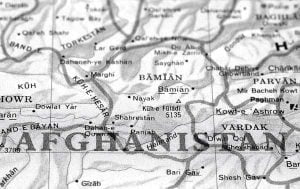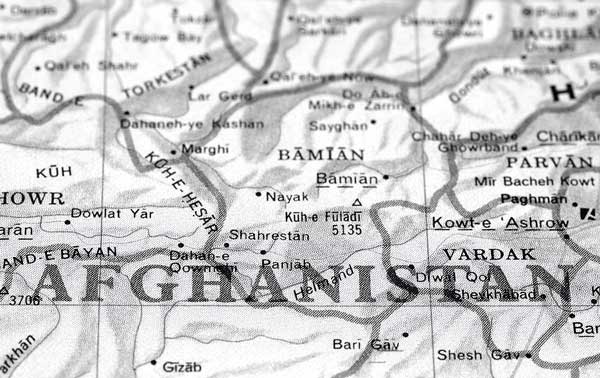The issue of promoting an enduring reconciliation between the Afghan government and influential members of the Taliban is the most controversial element of the peace process.
The intent is to exploit the fact that the Taliban leadership is not a cohesive group. Some Taliban leaders might accept a compromise settlement whereas others probably share to al-Qaeda’s absolutist ideology.
Karzai and Western leaders have repeatedly insisted that their reconciliation offer does not extend to al-Qaeda members, who are seen as alien foreign elements whose extremist convictions and past terrorist activities make them unacceptable negotiating partners. Although al-Qaeda and Taliban leaders are united in their desire to expel Western troops from Afghanistan and reestablish a strict Islamic government in which they enjoy a monopoly of political and religious power, some Taliban leaders might accept more moderate goals.

More importantly, a Taliban government would not necessarily support Islamic insurgencies in other countries or engage in distant terrorist attacks in Western countries, whereas al-Qaeda almost certainly would pursue such tactics.
In recent years, Taliban representatives, aware of the widespread eagerness to end the country’s decades of fighting, have insisted that their political ambitions are confined to Afghanistan and that they would not aide Islamic insurgencies in other countries or assist international terrorism.
In contrast, al-Qaeda leaders continue to declare their goal to be establishing radical Islamist regimes throughout the Muslim world (which they define to encompass Spain and other territories where there once had been a Muslim majority or Islamist ruler) and waging war against a long list of foreign governments that they see as resisting this objective or describe as Muslim oppressors.
The key uncertainty is whether a Taliban government would and could prevent al-Qaeda from reestablishing bases in any region of Afghanistan under its control, exercising more restraint than before 9/11, or would allow al-Qaeda to transform Afghanistan again into a haven for global terrorist operations.
Some argue that the Taliban, eager to return to power, would want to reconcile with the international community or at least prevent the further Western military strikes that would ensue should al-Qaeda again use Afghan territory as a base for external operations. The Taliban’s leadership has released statements saying that its political objectives were confided only to Afghanistan did not intend to harm any other countries.
Yet, it is hard to imagine the Taliban actually using force to prevent their al-Qaeda allies from reestablishing a military presence in Afghanistan and employing these new base camps to organize additional terrorist attacks in other countries.
U.S. plans to retain one or more bases in Afghanistan (ironically now for the purpose of being able to conduct military operations against high-value terrorist targets in Pakistan when necessary) would also offer the Taliban an irresistible and nearby target for their assaults.
The Taliban and al-Qaeda fighters in Afghanistan are closely integrated at the operational level, with al-Qaeda members embedded in many important Taliban field operations. Mullah Omar, who leads the Quetta Shura Taliban, has staunchly defended al-Qaeda and developed close personal ties with the group, despite the costs to the Taliban movement. There is no indication that this position has changed despite bin Laden’s death.
Even if the Quetta Shura Taliban were to break with al-Qaeda, the terrorists would still enjoy the protection of the more radical Haqqani network, which has a major presence in eastern Afghanistan and northwestern Pakistan and enjoys the patronage of key figures within Pakistan’s national security establishment. Secretary of State Hillary Clinton confirmed in congressional testimony that Pakistan arranged for U.S. and Haqqani representatives to meet on one occasion, but the Haqqani response to the U.S. outreach was to attack the U.S. Embassy in Kabul, allegedly with Pakistani assistance, on September 13.
Unless neutralized or included in any settlement, Haqqani members would likely collude with al-Qaeda operatives to avert a Taliban-Kabul peace agreement, which would threaten their interests in continued conflict. The Obama administration has lost hope that the Pakistani government will ever suppress the Haqqani network but has warned Islamabad that it needs to pressure the Haqqanis to join the peace process or the United States would have to destroy the group by itself, presumably with more aggressive attacks on its bases in Pakistan.
In public, Taliban representatives have also demand that all Western troops leave Afghanistan before they will even consider engaging in direct talks with the Afghan government. Karzai has sought to finesse the issue by noting that a peace agreement that ended militancy would bring about the withdrawal of all foreign military forces. The Taliban might reasonably expect them to depart in a few years in any case, without any concessions on their part.
Securing Pakistani support for any peace agreement is even more important. Pakistani officials have insisted on having a key role in any peace settlement, and have disrupted talks from which they have been excluded by arresting the senior Taliban representatives involved. The influence enjoyed by the Pakistani intelligence service within the Afghan Taliban assures them of de facto veto power over an initial agreement.
It is unclear whether the Taliban would genuinely accept Afghanistan’s current constitution, which was adopted after the Taliban lost power.
It includes a number of liberal democratic principles that many Taliban consider objectionable if not blasphemous. The Afghan peace commission has said that negotiations with the Taliban could only begin after they ended violence against civilians, severed their ties with al-Qaeda, and accepted the Afghan constitution guarantees of civil rights and liberties, including for women.
The Taliban leadership has moderated its formal position on some issues, and instructed its field commanders to do likewise in a recent field manual, but such policies seem like tactical maneuvers to reduce Afghan resistance to their return to power.
The provision guaranteeing women equal rights is a major point in dispute. Many women’s rights groups, in Afghanistan and elsewhere, oppose negotiating with the Taliban for fear of losing guaranteed schooling for girls and other rights. Human rights groups suspect that even if the Afghan government and Taliban representatives profess to respect the constitution in any future peace agreement, they will simply not fully enforce—either deliberately or due to the limited capabilities and authority of Afghan government institutions—some of its provisions in practice.
More generally, many Afghans complain they learn little about the peace process and fear they will eventually confront a settlement negotiated among Afghan and Taliban leaders imposed on them. They would like to see a less top-down, elite driven process by establishing some mechanism by which traditionally marginalized groups can express their views. Those Afghans distrustful of Pakistan and the NATO countries would also like to see the United Nations have a larger role in the peace process.
Even if Taliban leaders affirmed their willingness to talk, it would be hard to trust their intentions.
They could easily imitate the North Vietnamese strategy of professing to accept a compromise peace settlement in order to secure a foreign military withdrawal. They could then resume offensive operations against the still weak Afghan Security Forces, which have yet to demonstrate much military effectiveness. Some observers believe that the Taliban is already pursuing such a hold-till-2014 strategy.
The Pakistani Taliban has employed a variant of this stratagem in the past, ostentatiously negotiating truces with the military in order to allow their forces to rest and regroup before resuming their attacks shortly thereafter. Unlike in Pakistan, moreover, the Afghan insurgents could resume fighting with the expectation that their main adversary, the international forces, would be considerably hobbled in its response since Western publics would prevent their governments from sending their troops back to battle. Foreign governments might resume massive air strikes, but the resulting high number of civilian casualties, due partly to the absence of ground forces able to confirm the presence of noncombatants, could prove counterproductive.
The gap between the two sides has led some experts to endorse pursuing a patchwork of local settlements rather than a single national coalition government that would have to include both Karzai and his diverse opponents. These analysts believe that granting some local warlords and Taliban leaders formal or de facto control of Afghanistan’s most unstable provinces would not only recognize the reality of the limited powers of the Karzai government, but could also satisfy the many Taliban who fight mainly for money, influence, or other non-ideological reasons. The September 2010 report of the Afghan Study Group strongly endorsed the concept of promoting political decentralization within a loosely confederal Afghan state as a means of facilitating redress of local grievances: “governance should depend more heavily on local, traditional, and community-based structures.”
Yet, many considerations of principle and pragmatism suggest that such de facto political regionalization will prove difficult to achieve and sustain. Granting considerable local autonomy in Afghanistan would allow communities to give precedence to their own values, but some of these—especially in the area of women as well as ethnic and religious minority rights—will likely be at variance with the values enshrined in the national constitution and supported by the international community. It would also empower local elites to govern with considerable impunity from, for example, the central government’s counternarcotics police.
Past experience with local rule in Afghanistan and neighboring Pakistan also underscore the drawbacks of regional peace agreements.
The ill-fated experience with allowing a de facto Taliban government to exercise control over the southern Afghan city of Musa Qala from early 2007 to the end of that year—demonstrates that even major concessions will not moderate Taliban demands. After hard-pressed British commanders accepted the Taliban’s de facto occupation of the town, the group began to implement in Musa Qala the kinds of extremist social and political policies that had marked its rule before September 2001.
Skeptics of the durability of regional settlements also can point to the problems Pakistani authorities have experienced in attempting to negotiate durable truces with militant leaders in South Waziristan and other unstable regions along the Afghan-Pakistani border. Recurring difficulties have included differing interpretations of the agreed terms, the refusal of all insurgent groups to embrace a settlement, the opportunities the pauses in fighting have given the guerrillas to reequip and recruit, and the extremists’ reluctance to curtail insurgent use of their territory for cross-border operations into Afghanistan.



